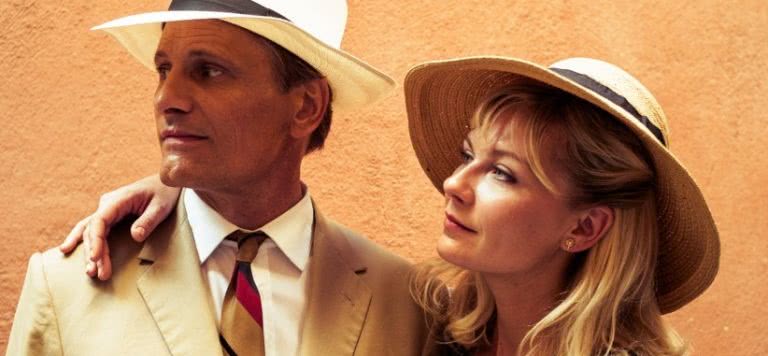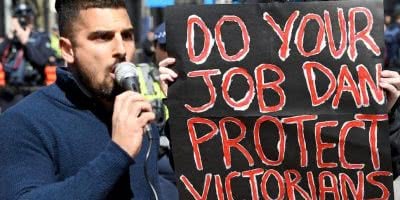In early 1960s Greece, an aimless American grifter, Rydal (Oscar Isaac), crosses paths with a golden couple, the refined Chester (Viggo Mortensen) and his gorgeous young wife, Colette (Kirsten Dunst). Rydal is taken by their glamorous lifestyle, but soon learns that Chester is simply a more successful conman and the pair is on the run from creditors back in the States. He offers to help them, but as the old saying goes, three’s a crowd – and soon allegiances are shifting and the double crosses are piling up.
That, in the shell of a nut, is the premise of The Two Faces Of January, the latest film to be adapted from the works of Patricia Highsmith (The Talented Mr. Ripley). It also marks the feature directorial debut of Hossein Amini, who is best known as a screenwriter (his credits range from the critically acclaimed Drive to 47 Ronin).
Amini has been fascinated with Highsmith’s novel since he first read it while at university. “It was very unusual,” he explains. “These three were very unusual characters at the heart of the crime drama. I love crime dramas generally, but usually the villains are villainous and the heroes are heroic. There was something about this where they were neither – they were neither heroes nor villains – and there were these shifting allegiances. You liked one character one moment and another character the next. The unusual way Highsmith portrays her heroes or antiheroes just really got under my skin. Over 25 years it’s taken me, from when I first read it to when it got made. It kept on speaking to me at different stages of my life – those characters wouldn’t go away.”
Amini admits that he was somewhat daunted by the challenge of translating Highsmith’s layered, deeply psychological prose to a visual medium, where he would not have the luxury of written descriptions of motive and character to fall back on.
“I think that’s one of the tough things about doing Highsmith,” he says. “She doesn’t follow a lot of the rules of conventional storytelling. The characters are often irrational – they’re often doing unexpected things and often unintelligent things. At one moment they’re kind and in the very next moment they’re very cruel, but I think there’s something very human in that. I think audiences expect cleaner, clearer lines out of characters, though, so it is a challenge. But the reason the book got under my skin is the reason I wanted to do the film – the flaws in the characters.”
Luckily, Amini was able to assemble a talented cast to communicate those complexities. “Both Viggo and Kirsten read it without me knowing that they’d read it. I was desperate to cast people like them. I think it’s really important because they appear as one thing at the beginning, this golden, F. Scott Fitzgerald-like couple, and gradually, through Rydal’s eyes, you begin to discover that they are not who they seem to be and the layers are slowly peeled away. Chester is a god at the Acropolis in the beginning and he’s in a gutter by the end.
“I think it was important to have characters that they liked. You see Viggo Mortensen or Kirsten Dunst and you instantly think, ‘Oh my god, I love them!’ but also, they’re brave enough actors to show that uglier side, the weakness and frailty. A lot of actors want to look great the whole time and they want to be admired. I think with Viggo it was interesting how he really embraced the scenes where he was drunk or paranoid or jealous and petty. I think it takes brave actors to show that side as well as what they’re seen as, which is incredibly beautiful and charismatic.”
The Two Faces Of Januaryis in cinemas now.



































